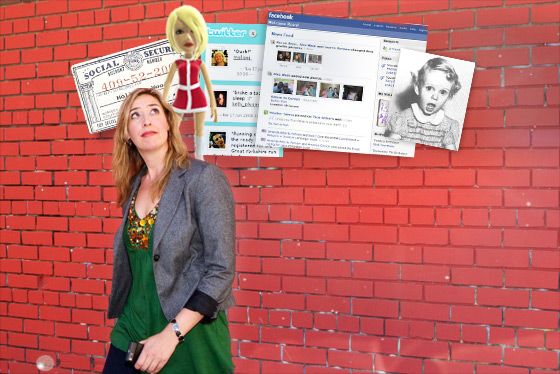Molly Wood, CNET's Executive Editor, and the host of a daily web show covering technology, posted to her blog last week under the headline: "Welcome to the age of data. Watch your back!"
In a conversation with 7x7, she said that the current "information boom" sweeping through the Bay Area can be summed up by one word -- data.
"The startups have this in common. They harvest data, use it to make connections, to advertise to you, or to use the web as a giant recommendation engine. Essentially, they are forming a kind of supercomputer made of users and their data."
She notes the "dark side" of all this. "The level of information out there about you and me is staggering. They can sell this data. So the cost of 'free' has never been higher."
What she is referring to is that while services such as Google and Facebook don't charge you anything for using them, what they get in return is access to all kinds of data that allows them to better tailor their services (and advertisements) to you on a targeted basis.
You'd have to reread each company's Terms of Service every week to keep up with their ever-changing policies when it comes to "protecting" your personal data. But one way or another, information about you and your preferences goes far beyond the corporate campuses in Mountainview or Palo Alto.
"There are the third-party data harvesters," says Wood, "or Mafia garbage collectors" that make it their business to find and sell data about us to all sorts of clients.
"We live in a transparent society now, but it is a one-way street where companies know all about us but we don't know very much about what they are doing with the information they gather about us.
Wood believes that the concept in Daniel Suarez's book "Freedom," where members of a "darknet" use special glasses that are able to display the publicly available information about all people on earth above their heads, has already essentially become reality.
She calls this our personalized "data score," although it's one we don't have access to.
She cites Google as a case in point. Given its enormous processing power, combined with the voluminous data it gathers as you use its many services like gmail, YouTube, maps, docs, Blogger, calendar, and so on, "Google could probably build a computer clone of you," notes Wood, "If it wanted to."
Related Articles
